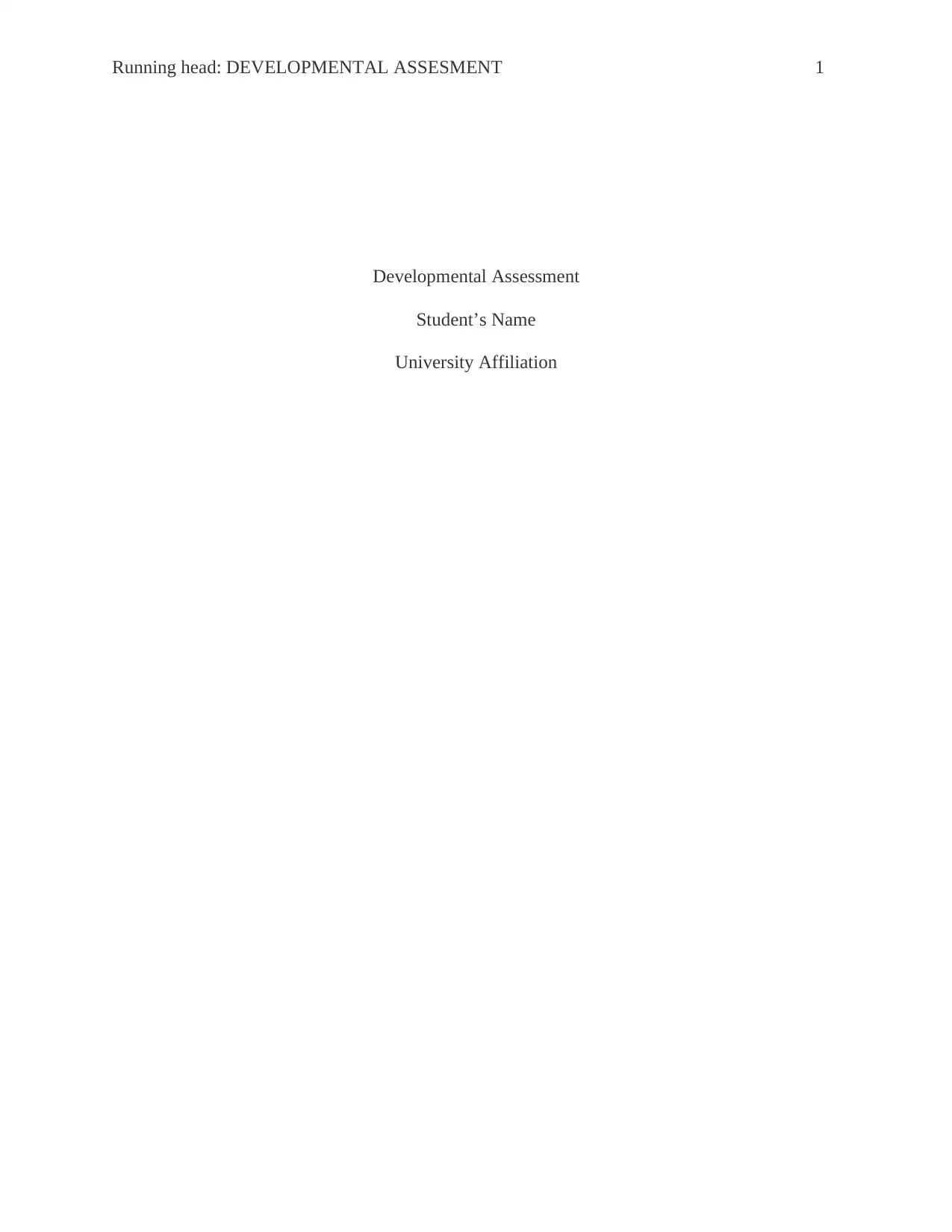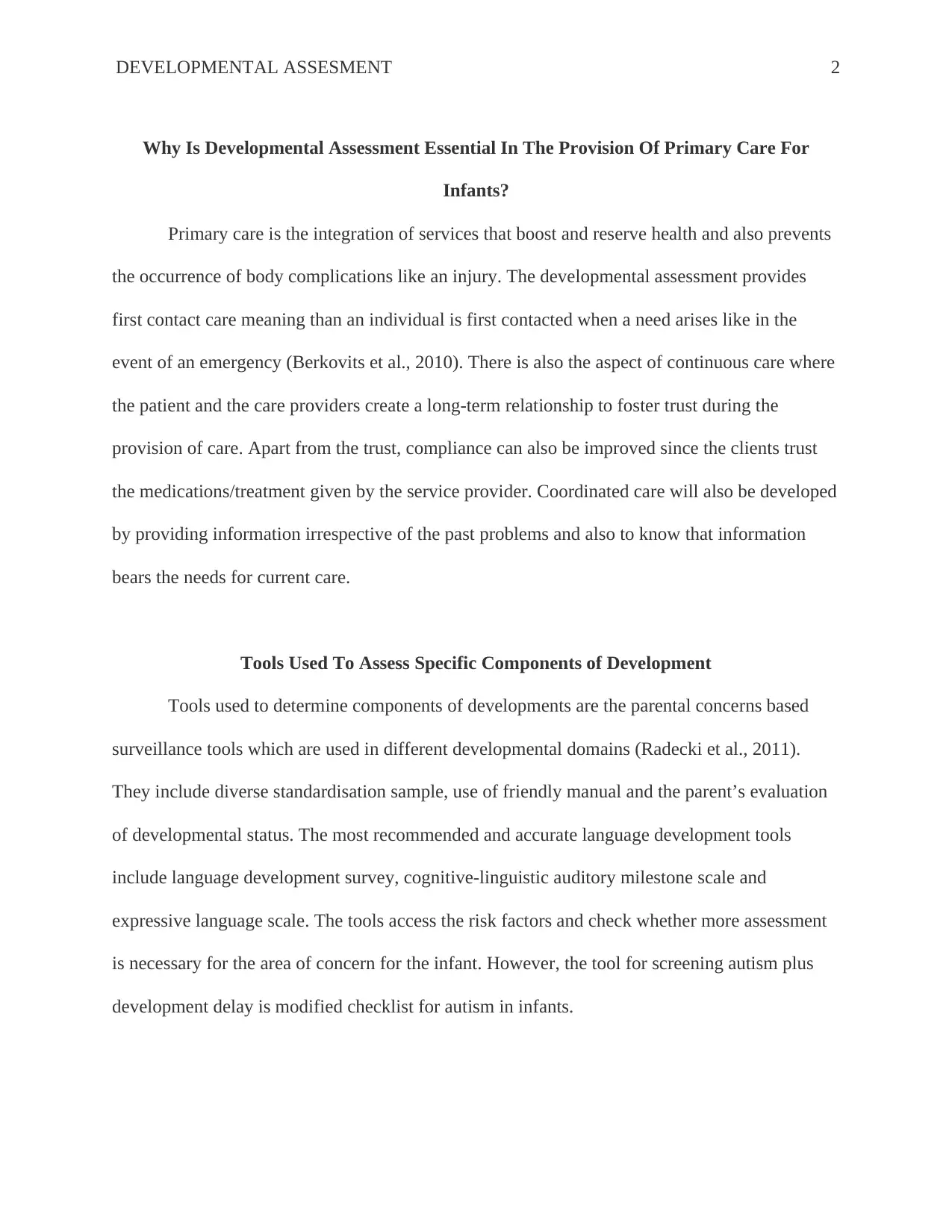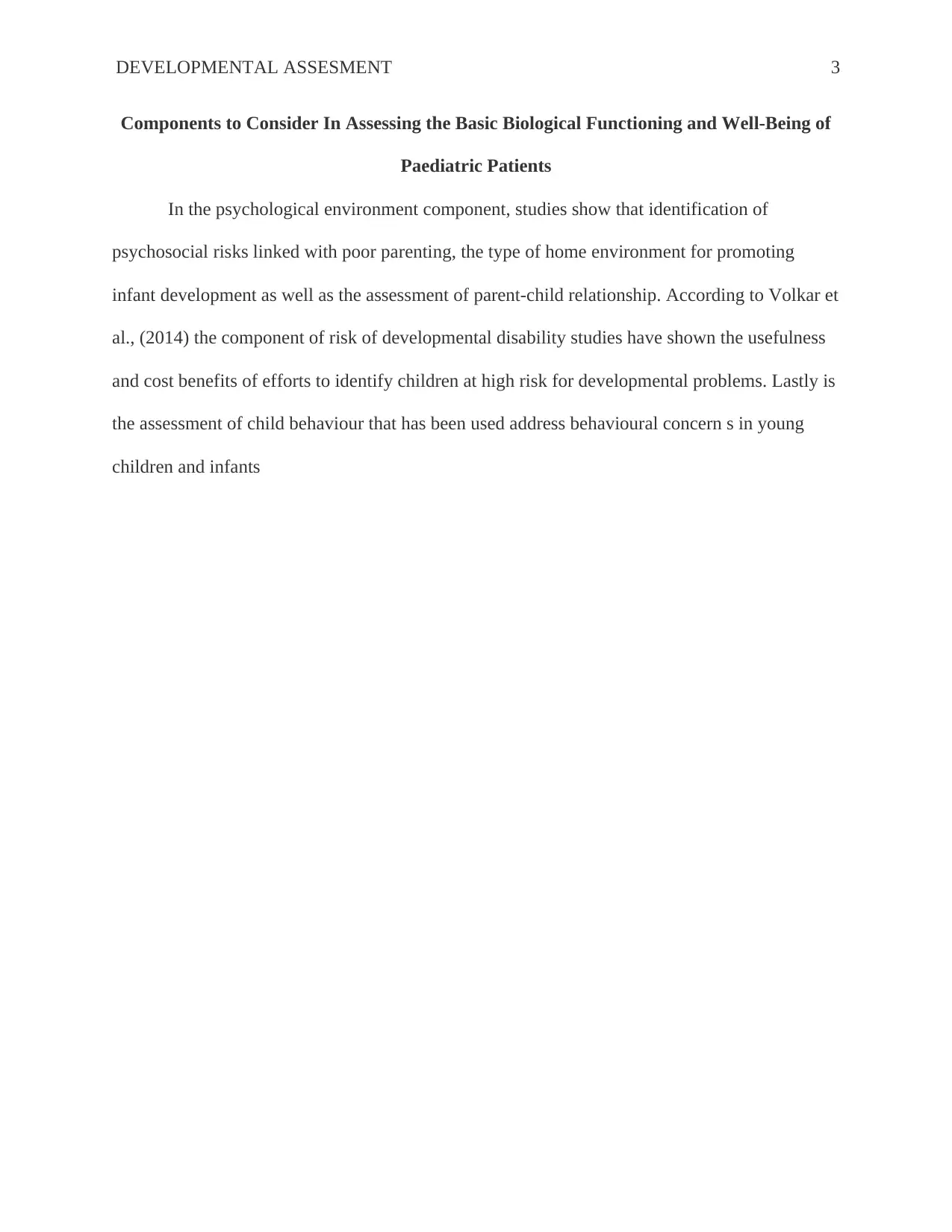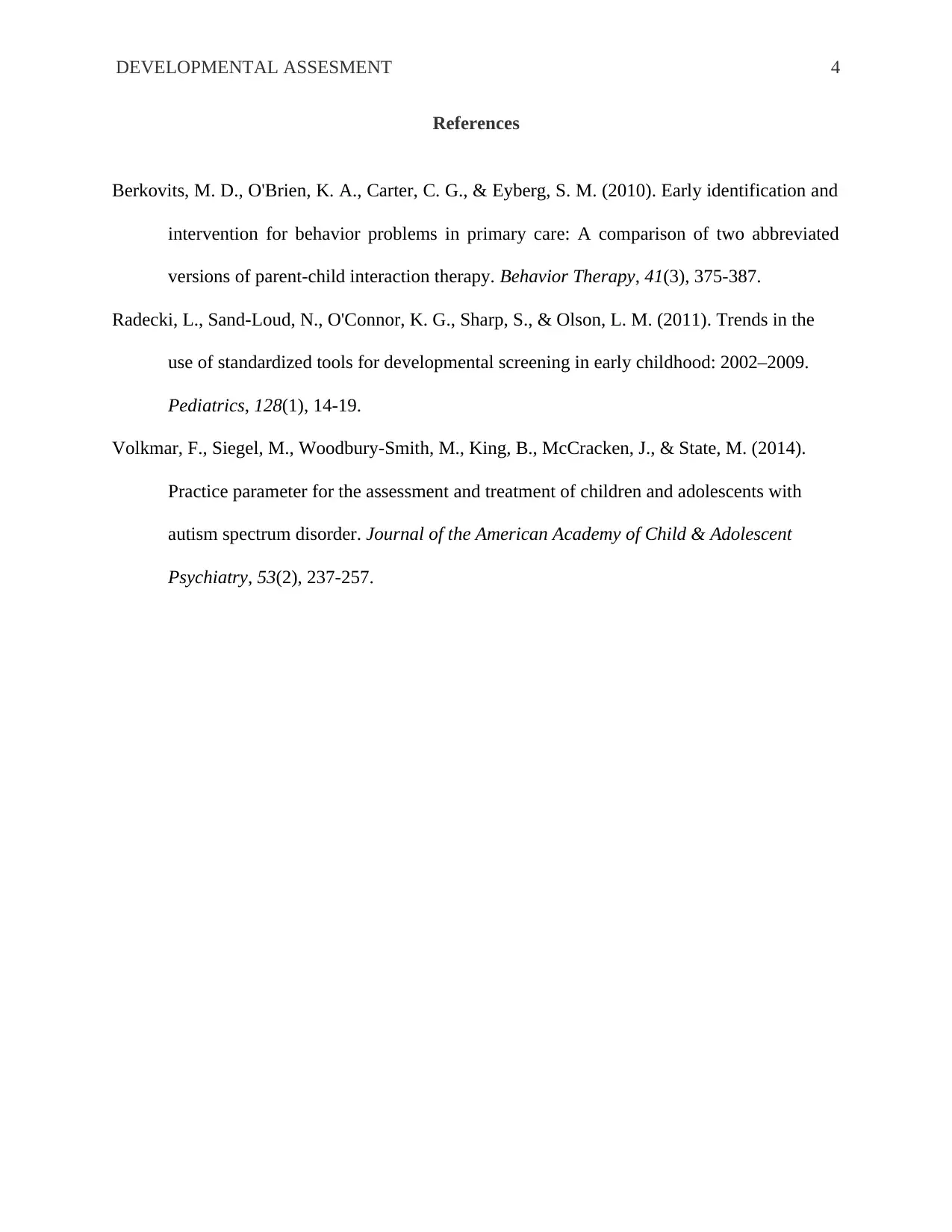Report: Developmental Assessment and Primary Care for Infants
VerifiedAdded on 2020/05/11
|4
|560
|276
Report
AI Summary
This report explores the critical role of developmental assessment within primary care settings, particularly for infants. It emphasizes the importance of early identification and intervention for potential developmental issues. The report details the use of various screening tools, such as those assessing language development and autism risk, and highlights the significance of parental concerns and standardized assessments. It further outlines key components to consider when evaluating the basic biological functioning and psychological environment of pediatric patients, including assessing psychosocial risks, the home environment, the parent-child relationship, and behavioral concerns. The report underscores the benefits of proactive developmental screening in improving patient outcomes and overall well-being, referencing relevant research and studies.
1 out of 4











![[object Object]](/_next/static/media/star-bottom.7253800d.svg)